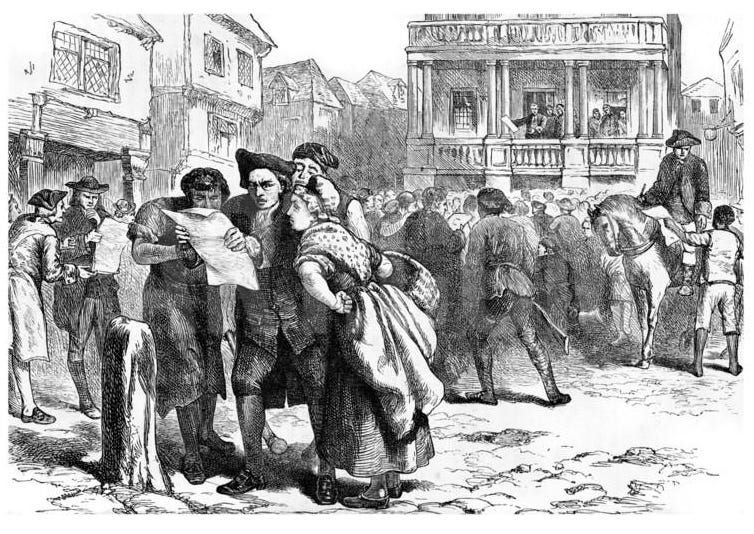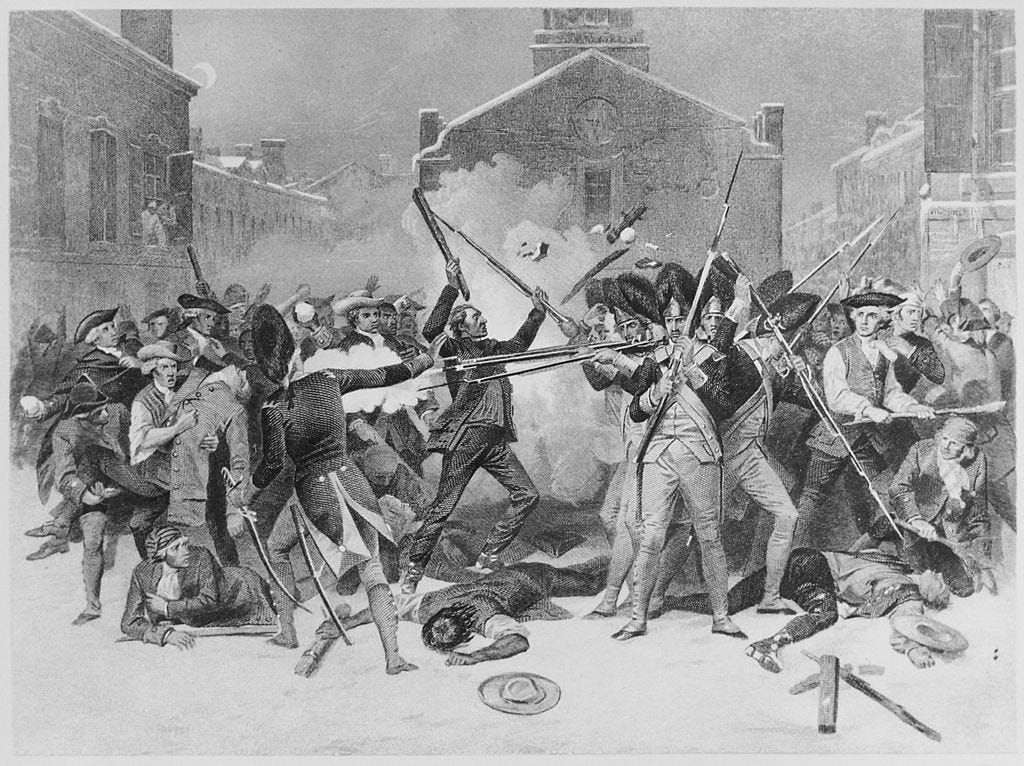Seeds of Revolution
Veterans Lead the Fight for Independence
Across the vast expanse of the thirteen colonies, a new kind of restlessness stirred. Veterans of the French and Indian War, hardened by years of brutal combat on the frontier, returned home to find themselves burdened by debt and discontent. The war, a costly victory, had left scars not just on the land, but on the men who fought for it. The British Parliament, seeking to recoup the war's expense, implemented taxes like the Stamp Act and the Sugar Act.

These taxes struck a nerve with the veterans. Having risked their lives for a cause they believed in, they chafed at the idea of being dictated to by a distant power. The rallying cry echoed from bustling port cities to quiet farmlands, fueled by the simmering anger.
The spirit of rebellion wasn't confined to the colonies' fringes; blacksmiths, shopkeepers, and even some wealthy landowners joined the ranks, united by their shared experiences and growing anger.
Fueled by the Enlightenment ideals of liberty and self-government, many veterans saw themselves not just as soldiers, but as citizens with a right to defend their freedoms.
Enlightenment thinkers like John Locke and Montesquieu influenced colonists like George Washington, a veteran of the French and Indian War. While Locke's focus was on individual liberty, Montesquieu's concept of citizen soldiery in republics likely resonated with veterans who had served their communities. Additionally, Montesquieu's ideas on separating military and civilian power may have fueled colonists' anxieties about a powerful British military stationed in their midst.
These ideas resonated deeply with veterans who had risked their lives for a cause they believed in, and who now chafed at the idea of being dictated to by a distant power.
News of growing unrest reached Britain, and in 1768, several regiments of British regulars were dispatched to Boston, the heart of colonial dissent. The presence of these redcoats only served to heighten tensions. The once-peaceful streets became a tinderbox of suspicion and hostility.
On a crisp March evening in 1770, a small crowd gathered outside the Boston Customs House, hurling insults and taunts at a lone British sentry. The situation escalated quickly, with snowballs and stones flying. Reinforcements arrived, tensions flared, and shots rang out. Five colonists lay dead in the snow, victims of what became known as the Boston Massacre.

The news of the massacre spread like wildfire throughout the colonies, igniting a firestorm of outrage. Veterans, many of whom had witnessed or experienced wartime atrocities, were deeply affected. The event became a galvanizing symbol of British tyranny, a stark reminder of the potential cost of their fight for independence.
The Boston Massacre marked a turning point. The simmering discontent of veterans and colonists alike boiled over, solidifying their resolve to resist British rule. The fight for independence was no longer a distant possibility; it was a burning necessity.
The story of the fight for independence will continue next week.
